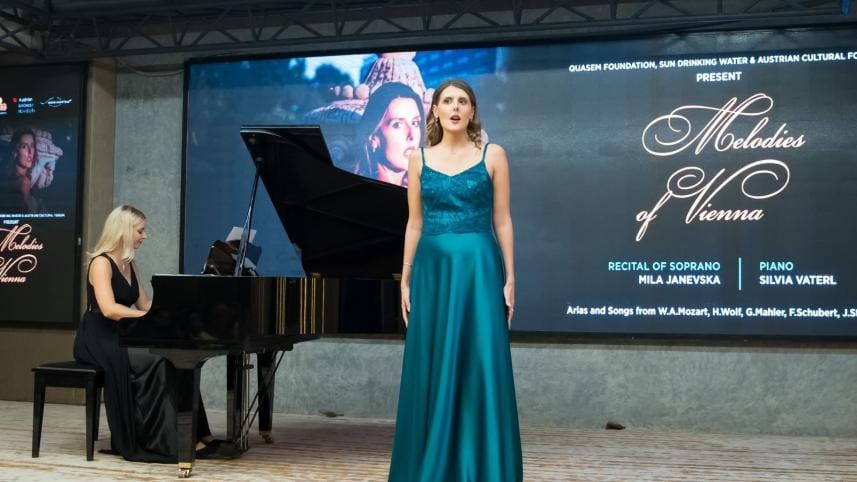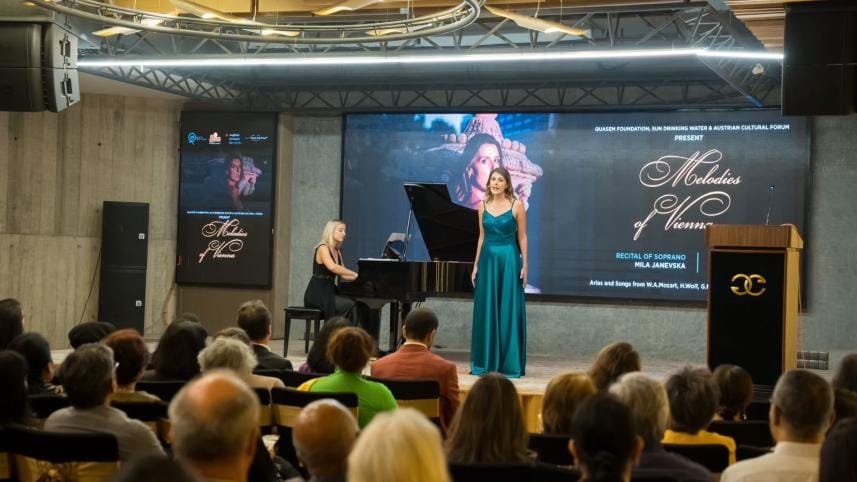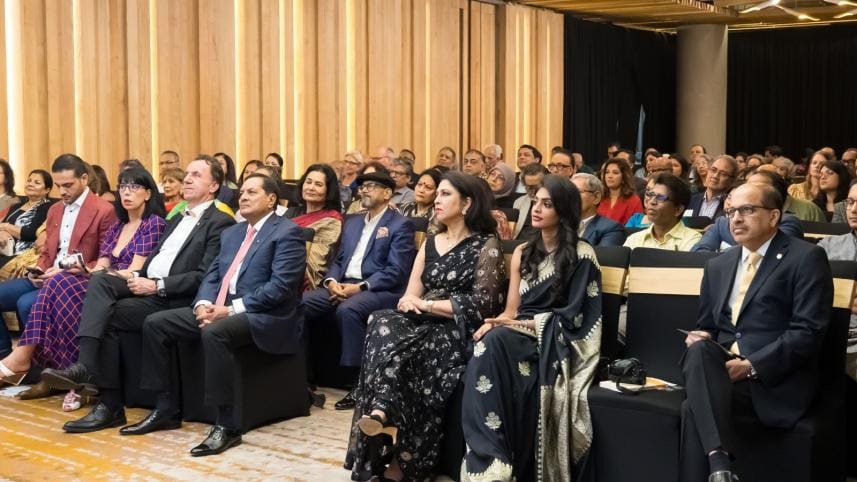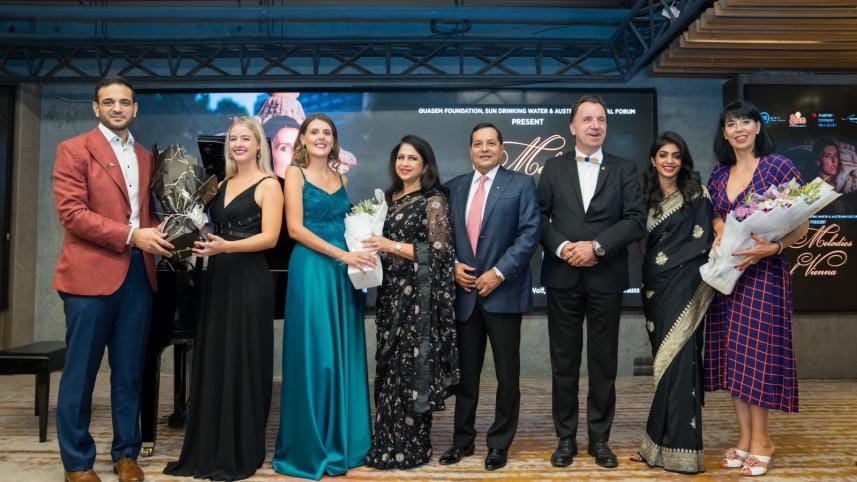‘Melodies of Vienna’: A night of opera in Dhaka

An opera night in Dhaka might seem a bit of an oxymoron, but contradictions can often coexist. Such was the case on the evening of last Friday (September 30), when "Melodies of Vienna" unfolded in the capital, featuring opera singer Soprano Mila Janevska and pianist Silvia Vaterl.
Opera, with its intricate fusion of music, drama, poetry, and movement, presents a complete sensory experience. The selected pieces for the evening showcased compositions by legendary Austrian composers, including Wolfgang Amadeus Mozart (1756-1791), Hugo Wolf (1860-1903), Gustav Mahler (1860-1911), Franz Schubert (1797-1828), and Richard Strauss (1864-1949).

The Austrian Cultural Forum, in collaboration with the Austrian Consulate in Dhaka, the Quasem Foundation, and Sun Drinking Water, hosted the spectacular evening of Austrian opera at the Gulshan Club.
The event—aimed to bring together opera enthusiasts, and the diverse audience who braved Dhaka's notorious traffic—proved that the love for opera knows no single demographic. Spectators of various ages, backgrounds, and levels of experience gathered, from seasoned opera aficionados to newcomers eager to explore the art form.
Though many in the audience did not understand the language, music's universal appeal transcended linguistic barriers. The synergy between Janevska and pianist Vaterl elevated the performance, presenting the two as equals in an engaging dialogue between voice and instrument.

Their seamless interaction often blurred the lines between where the piano ended and the vocals began, creating an immersive experience. Janevska's voice displayed technical precision, but it was her warmth and joy that captivated, while Vaterl's flawless performance was equally expressive, her energy and smile radiating through every note.
As the music enveloped the room, it stirred more than just the audience's sense of hearing—it became a deeply emotional experience, full of joy and hope.

In his closing remarks, Sameed Quasem, honourary vice consul of Austria to Bangladesh, expressed his gratitude to the Austrian Cultural Forum, stating, "Thank you for giving us this chance to experience such an intrinsic part of Austria's cultural heritage in Bangladesh. We are hopeful that in the future, we will be able to organise many more events like this, aimed at strengthening ties and facilitating the exchange of ideas between two nations with such rich histories in culture and the arts."
While some may argue that such an exclusive presentation isn't fitting for the current times, denying Dhaka this experience would have been unfortunate. Art and culture must endure, even in uncertain times, as they continue to uplift and inspire. We can only hope for more magical nights like this.
Razia Sultana Khan is a professor of English and Advisor at the Department of English and Modern Languages, Independent University Bangladesh (IUB).



 For all latest news, follow The Daily Star's Google News channel.
For all latest news, follow The Daily Star's Google News channel.
Comments